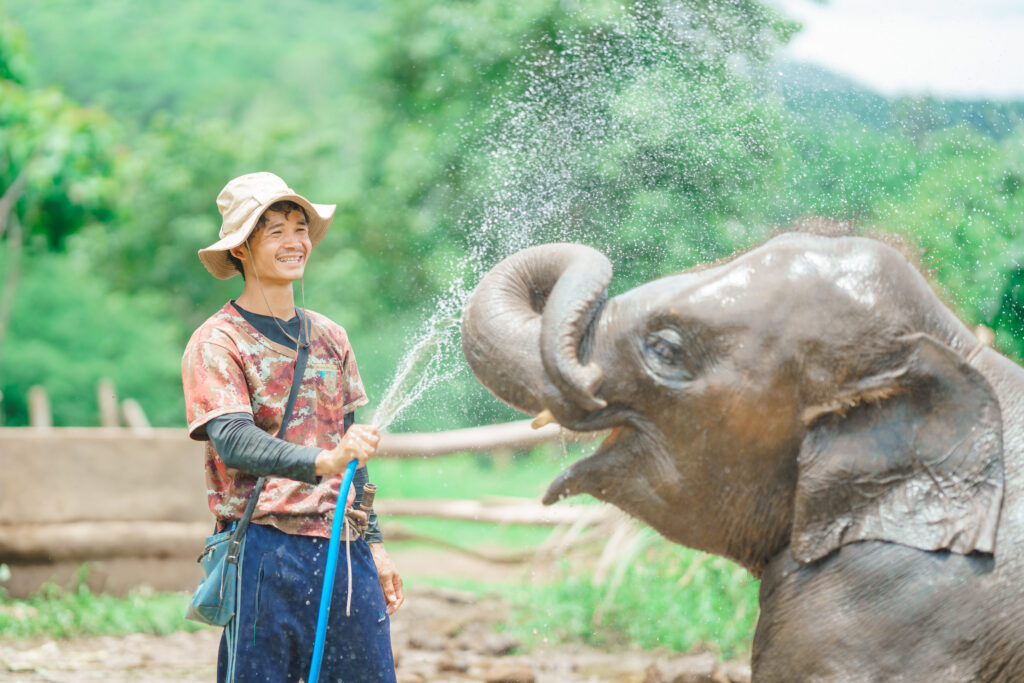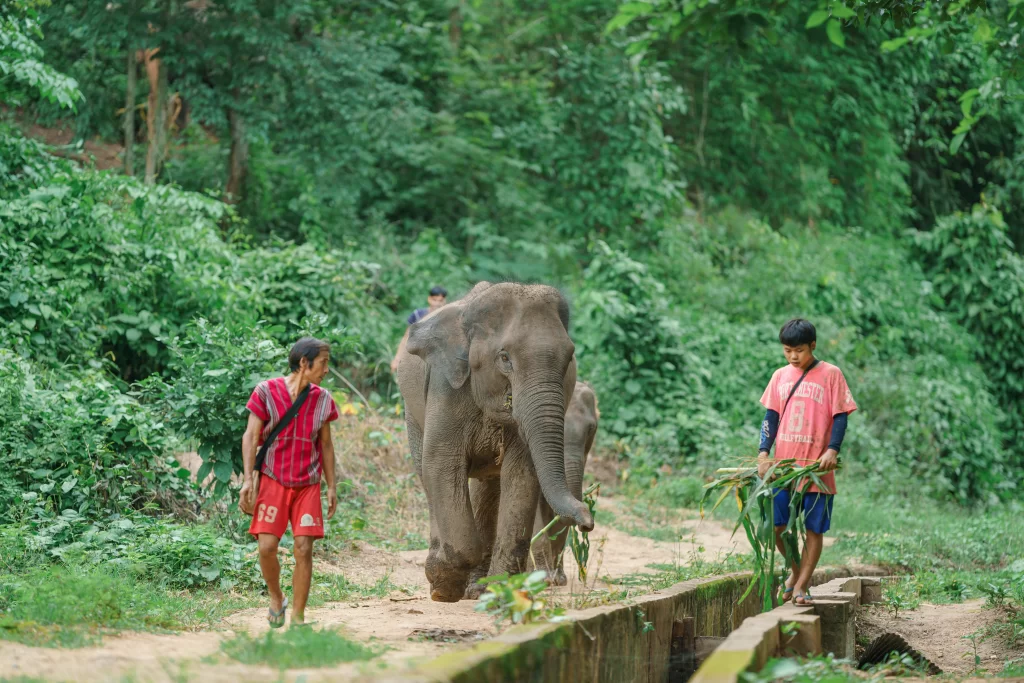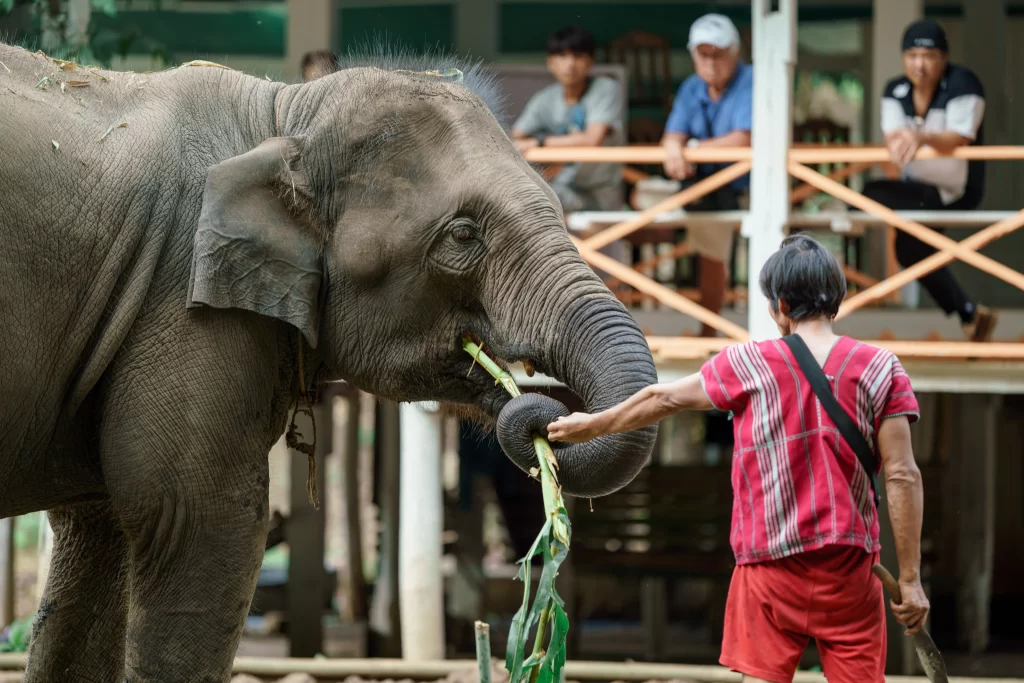Elephant Retreat: Committed to Ethical Elephant Care in Line with World Animal Protection Guidelines
At Elephant Retreat, we believe that the well-being of the elephants in our care comes above all else. As we continue to develop our sanctuary and share these magnificent creatures with visitors from around the world, our mission is firmly rooted in the ethical treatment of animals. That’s why we are proud to align our practices with the World Animal Protection (WAP) guidelines, ensuring that every interaction, activity, and experience at our sanctuary adheres to the highest standards of animal welfare.
The WAP guidelines emphasize that elephants should be able to express their natural behaviors in environments that closely resemble their wild habitats. This means large, open spaces for roaming, foraging, and socializing with other elephants. At Elephant Retreat, our sanctuary is designed to provide just that. Set against the breathtaking backdrop of the mountains of Chiang Mai, our elephants enjoy the freedom to roam, graze, and bathe in a natural, stress-free environment, away from the pressures of tourist-driven entertainment.

One key pillar of our ethical approach is maintaining a hands-off policy. Guests at the Elephant Retreat elephant sanctuary in Chiang Mai will not ride, touch, or directly interact with the elephants. Instead, our guests are encouraged to observe these majestic animals from a safe and respectful distance, learning about their natural behaviors and gaining a deeper understanding of their lives in a setting that honors their freedom and dignity. This approach not only protects the elephants but also fosters a more meaningful and educational experience for our visitors.
We’ve also developed an educational program that highlights the vital role of the Mahouts—the skilled caretakers who dedicate their lives to protecting and caring for the elephants. Through our program, guests will gain insight into the complex bond between Mahouts and their elephants, witnessing firsthand the care and dedication it takes to ensure their well-being.
By following these ethical guidelines and working to protect elephants from exploitation, Elephant Retreat stands as a sanctuary for both the animals and those who want to experience them in a way that respects their natural behaviors and promotes long-term conservation. Join us in our mission to protect these incredible animals by supporting practices that put their welfare first.
- Commitment to Animal Welfare
- No direct contact: Visitors do not ride or physically interact with the elephants.
- Natural behaviors encouraged: Elephants are free to roam, forage, and engage in behaviors they would exhibit in the wild.
- Mahout relationships: Our programs focus on observing the strong bonds between elephants and their mahouts, emphasizing the care and respect involved.
- Spacious habitats: Elephants live in open areas with access to natural resources like rivers, forests, and mud baths.


Programs Offered in Alignment To The World Animal Protection guidelines
- Observation-based experiences: Visitors can observe elephants interacting naturally in their environment, such as during river hikes, mud baths, and feeding sessions.
- Educational focus: Programs educate guests on elephant conservation, responsible tourism, and the vital role of mahouts in elephant care.
- Volunteer program: Volunteers participate in activities that support the elephants’ well-being, such as preparing their food and maintaining the sanctuary’s facilities, all while learning about ethical elephant care.
- Alignment with World Animal Protection Guidelines
- No rides, no performances: The sanctuary strictly follows a no-riding policy and prohibits any form of elephant entertainment.
- Ethical tourist experiences: Elephant Retreat promotes only responsible and ethical interactions with wildlife, allowing tourists to support conservation without causing harm.
- Compliance with international standards: The sanctuary operates in line with globally recognized animal welfare standards and is continually working to improve the lives of the elephants in our care.
- Commitment to Conservation
- Sustainability efforts: We actively work to reduce our environmental impact through responsible land use, waste reduction, and sustainable practices.
- Community involvement: We collaborate with local communities to raise awareness of the importance of elephant conservation and sustainable tourism.


